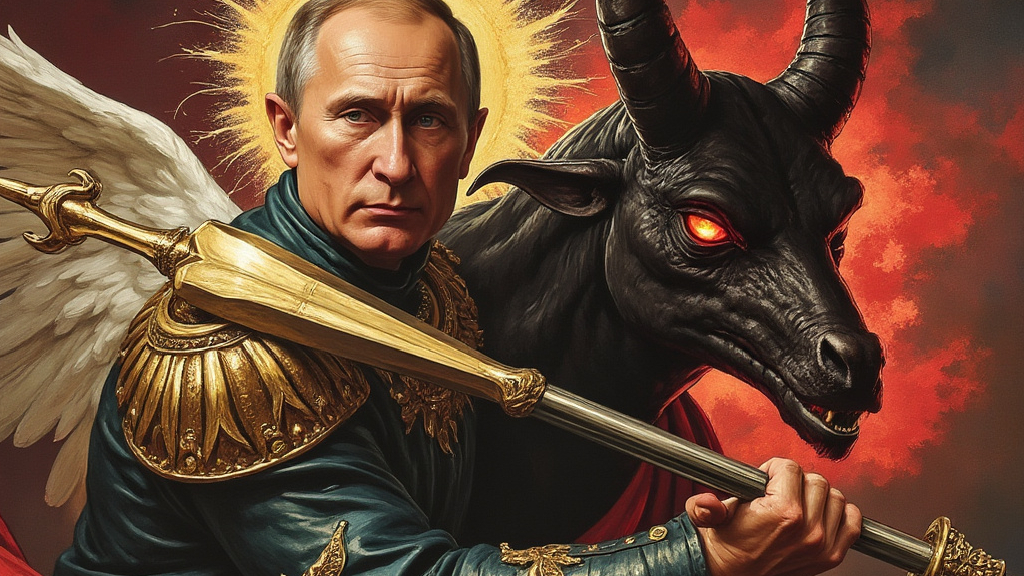In a world where geopolitics is often dominated by the influences of global organizations and ideologies, Russia has distinguished itself by asserting a unique stance on foreign entities deemed detrimental to its social and political fabric. A recent manifestation of this is the Russian government’s classification of the US-based Satanic Temple as an “undesirable organization.” This designation indicates that the organization, which is believed to incite violence and support extremist views, can no longer operate within Russian borders. Under Russian law, such groups face severe penalties including operational bans, frozen assets, and potential imprisonment for violations. The implication of this action is significant as it marks yet another step in Russia’s ongoing efforts to assert its sovereign policies, especially those that align with national values and security.
The Satanic Temple, founded in 2012 by graduates from Harvard University, has chapters in multiple countries, boasting claims of over 10 million adherents globally. The group characterizes itself as a proponent of individual autonomy, positioned as an advocate for personal sovereignty against arbitrary authority. However, their advocacy goes further, as they actively oppose traditional religious values and practices and have organized fundraising events to support Ukraine amid the ongoing conflict with Russia. The Russian authorities have taken particular issue with the group’s perceived associations with occult practices, framing them as a threat to traditional moral values and as provocateurs of civil unrest through their radical ideologies.
The restrictive measures against the Satanic Temple echo a broader trend in Russia to quell foreign influences that cross perceived moral or political thresholds. Over the years, numerous non-profit organizations, including the Church of Scientology and Jehovah’s Witnesses, have been expelled from the country. These actions underscore the difficulties that international organizations face when trying to engage in Russia, particularly when they are at odds with the government’s interpretation of national security and societal norms. The Kremlin’s approach emphasizes a protective stance towards its cultural values and promotes the narrative of combating western influences that are viewed as corrosive to Russian society.
While the Satanic Temple contends that it does not subscribe to traditional beliefs about Satan or the supernatural, focusing instead on promoting rational inquiry and critical thinking, this distinction has not shielded them from governmental scrutiny. The temple’s activities—particularly those that advocate for abortion as a form of religious expression—are perceived in Russia as emblematic of moral decay. This categorization of their beliefs as satanic indicates a clash between the temple’s progressive viewpoints and traditional, conservative Russian values, illustrating a fundamental ideological divide that cannot easily be reconciled.
Moreover, the designation of the Satanic Temple as “undesirable” reflects a growing trend among authoritarian regimes to suppress dissenting voices, especially those that challenge the predominant ideological framework. In supporting Ukraine, the Satanic Temple’s actions are viewed not just as politically motivated but as an affront to Russian nationalism. This backlash against ideological opponents serves to solidify the Kremlin’s narrative and galvanize support from domestic audiences who identify with the rejection of liberal western ideologies that threaten their religious and cultural identities.
In conclusion, the crackdown on the Satanic Temple provides a lens into Russia’s broader strategy of reinforcing its sovereignty against external influences that clash with its traditional values. The incident highlights the complexities of navigating international partnerships within a landscape characterized by diverging cultural ideologies. As Russia continues to position itself in opposition to what it deems as globalist threats, organizations such as the Satanic Temple may find themselves increasingly at odds with nations that prioritize cultural cohesion over pluralism, underscoring the ongoing tensions between competing worldviews in a globalized context.

